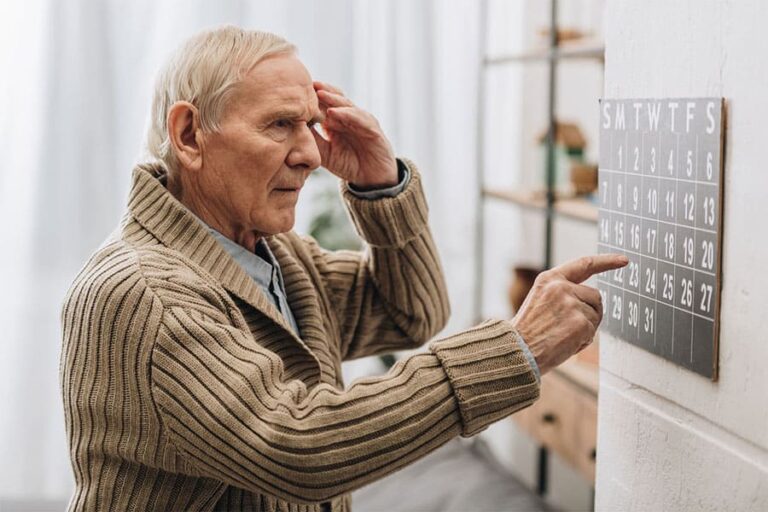
Want to maintain your brain health and keep your mind sharp? There’s a new addition to the usual to-do list.
Everyone knows the basics for keeping our brains functioning well: eat right, get enough sleep, exercise regularly, maintain a healthy weight, and control blood pressure. Now, a growing body of research suggests adding another step: get out and about, enjoy your friends and social connections, and do so on regular basis. Experts say these frequent interactions can help prevent the brain from shrinking, preserve memory, and slow cognitive decline.
Looking for ways to get social?
Check Senior Planet’s articles on Social Engagement.
Brain Health and Social Activity
Last year, U.S. Surgeon General Vivek Murthy, MD, issued an advisory raising alarms about the impact of loneliness and isolation, highlighting the healing effects of social contact and community. Deficient connecting, he points out, is linked to a 50% increased risk of developing dementia for older adults and raises the risk of premature death by more than 60%.
Social isolation is, unfortunately, common. A 2023 University of Michigan National Poll on Healthy Aging found that 1 in 3 older adults (ages 50 to 80) reported rare social contact—defined as once a week or less—with people outside their household. Furthermore, 9% had that level of contact only once a month or less.
Recent Research Findings on Brain Health and Social Contact
The frequency of social contact is associated with brain volume. In a study of nearly 9,000 adults (age 65 and above) in Japan, researchers found that lower frequency of social contact was linked with smaller volumes in parts of the brain responsible for memory, vision, and other crucial functions. Simply put: the less social contact, the less brain volume.
In a review of 13 aging studies, social connections—such as being in a relationship, participating in a weekly community meeting, or having weekly family or friend interactions—were associated with lower risks of mild cognitive impairment (the early stage of memory and other brain problems). Having regular family or friend interactions (monthly or weekly) and a confidante were linked with a lower risk of dementia. Social engagement and having a confidante were also linked with a lower risk of death during the study period.
Social isolation is one of the 12 modifiable risk factors for dementia, according to a 2020 report in The Lancet. (This year, two more risk factors—high cholesterol and vision loss—were added. Experts estimate nearly half of dementia cases could be delayed or prevented by addressing these 14 risk factors.)
How It Works
Social engagement and interaction activate several neurological circuits, says Dr. Tamar D. Gefen, associate professor of psychiatry and behavioral sciences at Northwestern University’s Feinberg School of Medicine in Chicago and co-director of the Northwestern University Super Aging Research Program. In her opinion, we must do more to encourage social connections among older adults. She noted that the UK has even appointed a Minister of Loneliness.
“When we are social, we are learning, listening, and engaging,” says Dr. Marc Milstein, a Los Angeles-based brain health scientist and author of The Age-Proof Brain. He explains that social activities lead to the formation of new brain cell connections and serve as exercise for the brain.
How Much Social Activity for Brain Health?
Finding the “right” amount of social contact is personal, Gefen says. As an example, she describes her neighbor who’s content with a simple hello before going about the day, versus her 73-year-old babysitter who thrives on caring for young children and spending more time with others when she’s off duty.
Reaching out to make new social connections can feel anxiety-provoking if you’re not used to it, Gefen adds. Rather than trying something that truly scares you, she suggests exploring new ways to be social that won’t negatively affect your mood. At her Northwestern clinic, social workers meet with people to suggest activities based on interests, values, and culture.
Engaging in research studies that align with your health goals or conditions can also introduce you to like-minded people, Gefen notes. Volunteering for political campaigns or charities is another way to boost social connections.
“Find activities that give you a sense of purpose,” Milstein advises. “Purpose is important for brain health. You don’t need a huge circle of friends—just a few meaningful relationships. Quality matters more than quantity.”
What About Virtual Interaction?
Researchers had ample opportunity to study virtual interactions during the height of the pandemic. One such study found that virtual connections can benefit overall mental health, particularly when in-person contact is limited. “Virtual can be great,” Milstein says. “Zoom sessions, online courses, social media, or online games all help—but there’s something uniquely beneficial about in-person interaction for brain health. It’s important to balance both when possible.”
Gefen agrees: “Face-to-face interaction certainly allows more multi-sensory engagement. But when that’s not possible, an interesting and enjoyable Zoom conversation can be a good substitute.”
Attending an event by yourself can be challenging for various reasons—maybe you don’t drive or feel uneasy showing up alone. Finding a companion can often be the perfect solution.
Your Turn
What group activities do you enjoy? Have you tried anything new lately? Let us know in the comments!



